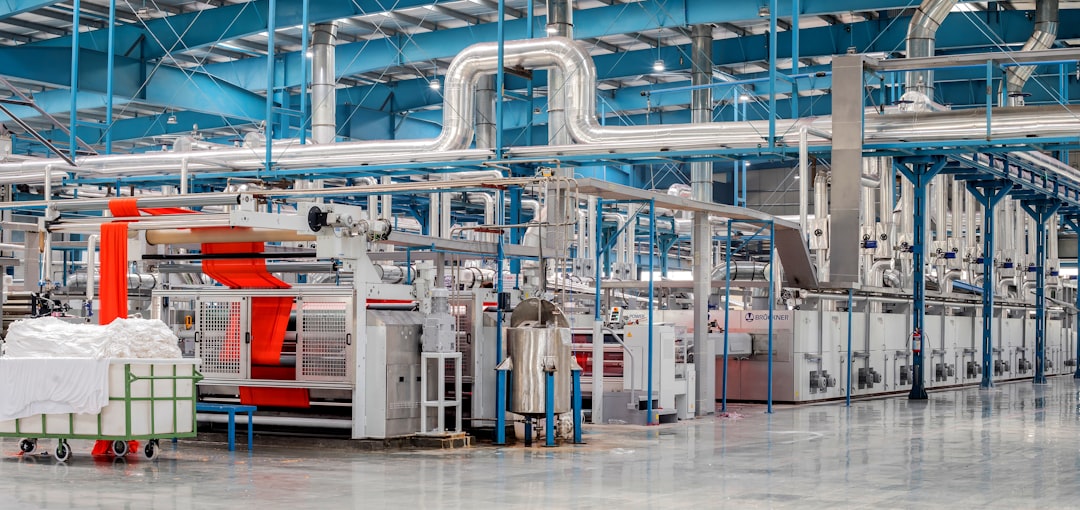Outsourcing manufacturing processes has become a common trend among businesses looking to cut costs, improve efficiency, and focus on their core competencies. Outsourcing allows companies to leverage the expertise and resources of specialized suppliers, leading to numerous benefits for both the business and its customers. In this blog post, we will explore the various advantages of outsourcing certain manufacturing processes.
1. Cost savings
One of the most significant benefits of outsourcing manufacturing processes is cost savings. By outsourcing production to countries with lower labor costs, companies can reduce their overall production costs significantly. They can also avoid the significant upfront investment required to set up manufacturing facilities and purchase expensive equipment. Additionally, outsourcing allows businesses to benefit from economies of scale and take advantage of bulk discounts offered by suppliers.
2. Increased efficiency
Outsourcing certain manufacturing processes can help improve operational efficiency by allowing businesses to focus on their core competencies. When companies engage with specialized suppliers, they can benefit from their expertise and resources, leading to higher-quality products and faster production cycles. Companies can also access cutting-edge technology and manufacturing processes that might not be available in-house, leading to improved efficiency and competitiveness in the market.
3. Flexibility and scalability
Outsourcing manufacturing processes provides businesses with a high level of flexibility and scalability. They can easily scale production up or down to meet fluctuating demand without having to invest in additional resources or infrastructure. This flexibility allows companies to respond quickly to market changes and manage production costs more effectively. Furthermore, outsourcing allows businesses to access a global network of suppliers and manufacturers, offering them a wider range of options for production and distribution.
4. Focus on core competencies
When companies outsource manufacturing processes, they can focus on their core competencies and strategic objectives. By delegating routine manufacturing tasks to specialized suppliers, businesses can redirect their resources and energy towards innovation, product development, and customer satisfaction. This focus on core competencies can lead to a competitive advantage in the market and help businesses differentiate themselves from competitors.
5. Risk mitigation
Outsourcing manufacturing processes can help businesses mitigate various risks associated with production, such as supply chain disruptions, quality control issues, and regulatory compliance. Specialized suppliers have the expertise and experience to manage these risks effectively, reducing the likelihood of production delays or quality issues. Additionally, outsourcing allows companies to diversify their supplier base and reduce dependence on a single source, mitigating the impact of supplier failures or geopolitical events.
6. Access to specialized expertise
One of the key benefits of outsourcing manufacturing processes is accessing specialized expertise and resources that might not be available in-house. By partnering with specialized suppliers, businesses can tap into a wealth of knowledge, skills, and technology that can help improve product quality, reduce production costs, and drive innovation. Specialized suppliers often have extensive experience in their respective industries and can provide valuable insights and recommendations to improve manufacturing processes.
7. Improved product quality
Outsourcing manufacturing processes can lead to improved product quality by leveraging the expertise and resources of specialized suppliers. These suppliers often have strict quality control measures in place to ensure that products meet industry standards and customer expectations. By outsourcing production to these suppliers, businesses can benefit from higher-quality products that are free from defects and meet stringent quality requirements. Improved product quality can boost customer satisfaction, enhance brand reputation, and drive sales growth.
8. Faster time-to-market
Outsourcing certain manufacturing processes can help businesses reduce their time-to-market and bring products to market faster. Specialized suppliers often have faster production cycles and lead times compared to in-house manufacturing facilities, allowing companies to respond quickly to changing market conditions and customer demands. By outsourcing production, businesses can accelerate the product development process, shorten lead times, and gain a competitive edge in the market.
9. Environmental sustainability
Outsourcing manufacturing processes can also have environmental benefits by reducing the carbon footprint of production. Specialized suppliers often use efficient manufacturing processes and technologies that help reduce energy consumption, waste generation, and greenhouse gas emissions. By outsourcing production to these suppliers, businesses can lower their environmental impact and demonstrate a commitment to sustainability. Environmental sustainability can also enhance brand reputation, attract environmentally conscious customers, and drive long-term business growth.
In conclusion, outsourcing certain manufacturing processes can provide numerous benefits for businesses looking to cut costs, improve efficiency, and focus on their core competencies. From cost savings and increased efficiency to flexibility and scalability, outsourcing offers a range of advantages that can help businesses thrive in today’s competitive market. By partnering with specialized suppliers, companies can access specialized expertise, improve product quality, and accelerate time-to-market, leading to greater profitability and sustainable growth. Ultimately, outsourcing can be a strategic decision that enables businesses to stay competitive, innovate, and succeed in an increasingly globalized economy.

